Institute leaders
Leaders |
|
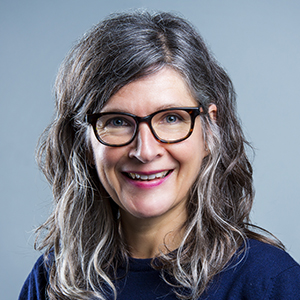 Tanja Tajmel |
Tanja Tajmel is Associate Professor at the Centre for Engineering and Society at Gina Cody School of Engineering and Computer Science. She received a PhD in Physics Education from Humboldt-University Berlin, Germany. Her research focusses on investigating and reducing intersectional barriers, “othering” and discrimination in the field of STEM education. Dr. Tajmel promotes the idea that STEM education is a human right, and everybody has the right to participate in and benefit from STEM. Thus, STEM must provide an inclusive environment to be accessible to everybody. Currently, Dr. Tajmel is leading the “Try Concordia” mentorship program for female CÉGEP students and is representative of Gina Cody School at the 30-by-30 initiative of Engineers Canada. |
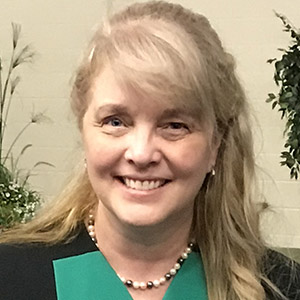 Stefanie Ruel |
Stefanie Ruel, BSc, MBA, DBA, was awarded the Academy of Management Critical Management Studies Division’s 2018 Best Dissertation Award for her work entitled Multiplicity of ‘I’s’: Women’s exclusion from STEM management in the Canadian space industry. Dr. Ruel was, until recently, a Senior Mission Manager in Life Sciences at the Canadian Space Agency (CSA), leading more than ten life sciences missions into space. Dr. Ruel is currently an Assistant Professor at Concordia University, John Molson School of Business, Faculty of Management. Her research agenda includes a critical examination of gender and diversity in STEM contexts. Her forthcoming book, STEM-professional women’s exclusion in the Canadian space industry: Anchor points and intersectionality at the margins of space, will be released in 2019. |
Invited speakers |
|
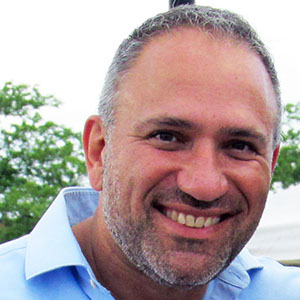 Alain Berinstain |
Alain Berinstain, a Concordia University alumnus (BSc in Chemistry and Biochemistry), who holds a PhD in Physical Organic Chemistry from the University of Ottawa, joined Moon Express in November 2017 as Vice President of Global Business Development. He oversees the international growth of Moon Express strategic business interests, and leads engagement with global space agencies on science and exploration initiatives. From 2015 to 2017, Dr. Berinstain was Director of Policy for Canada’s Minister of Transport, Hon. Marc Garneau, former president of the Canadian Space Agency and Canada’s first astronaut. Well known in the international space science community as an interdisciplinary scientist, strategist and communicator, Dr. Berinstain worked for the Canadian Space Agency (CSA) for 17 years, including roles as Director, Planetary Exploration and Space Astronomy, and Director, Science and Academic Development. Dr. Berinstain was a finalist in Canada’s 2009 astronaut recruitment campaign, and is an expert in the development of greenhouse technologies for the Moon and Mars. |
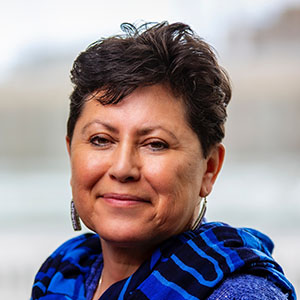 Donna Kahérakwas Goodleaf |
Donna Kahérakwas Goodleaf is Turtle Clan and is a citizen of the Kanien’kehá:ka (Mohawk) Nation, Kahnawake Territory, which is part of the Rotinonhsión:ni Confederacy. She currently works in the position of Indigenous Curriculum and Pedagogical Advisor at Concordia’s Centre for Teaching and Learning. Ms. Goodleaf’s primary work entails developing and implementing decolonizing workshops for faculty on ways to decolonize, restore and animate Indigenous theories, worldviews, epistemologies and pedagogical practices across the university system. Ms. Goodleaf currently serves on the Indigenous Directions Leadership Group at Concordia. |
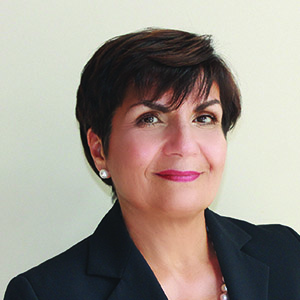 Gina Cody |
Dr. Gina Parvaneh Cody immigrated to Canada from Iran in 1979. She was the first woman awarded a PhD in building engineering at Concordia University. Dr. Cody has more than 30 years’ experience as a professional engineer, corporate executive and principal shareholder of an engineering firm. Dr. Cody served the Professional Engineers of Ontario (PEO) for more than 20 years and was granted the Certificate of Fellowship and the Award of Honor by PEO. She is also a recipient of the Award of Merit by the Canadian Standards Association, and was named knight to the Order of Montreal in 2019. In 2018, Dr. Cody made an historic $15-million gift to Concordia's Faculty of Engineering and Computer Science. In honour of her professional accomplishments and generosity, the faculty was renamed the Gina Cody School of Engineering and Computer Science. It is the first engineering faculty in Canada, and one of the first internationally, to be named after a woman. |
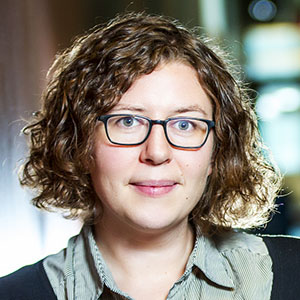 Kari Zacharias |
Kari Zacharias is an Assistant Professor in Concordia University’s Centre for Engineering in Society. She earned a PhD in Science and Technology Studies from Virginia Tech. Dr. Zacharias’s undergraduate courses encourage engineering and computer science students to understand and engage with the complex relationship between science, technology, and society. Her research examines how communication and institution-building can occur across different disciplinary knowledge traditions. Her dissertation examined the origins and consequences of research institutes that seek to combine the arts and technology, and her ongoing work on the Bridging Chasms project aims to identify strategies for successful cross-disciplinary communication. She also holds an MA in Science, Technology, and Society from the University of Vienna and a BASc in Engineering Science from the University of Toronto. |
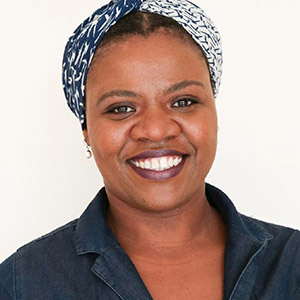 Katemari Rosa |
Katemari Rosa is a professor at the Institute of Physics from Federal University of Bahia, in Brazil. She is particularly interested in debates in science education that consider intersectional approaches of race, gender and SES. Dr. Rosa is a member of the Brazilian Physical Society, where she integrates the Minorities in Physics Working Group and the Physics Education Commission. At the American Physical Society, she was elected member of the Forum on the History of Physics Executive Committee. She is also part of the American Association of Physics Teachers, acting as vice-chair of the Committee for International Physics Education. Dr. Rosa belongs to the National Organization of Gay and Lesbian Scientists and Technical Professionals and the Brazilian Association of Black Researchers. |
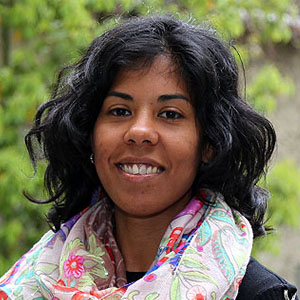 Mariana Ines Paludi |
Mariana Ines Paludi earned her PhD from Sobey School of Business, Saint Mary’s University, Nova Scotia, Canada. She is an assistant professor at Universidad Mayor in Santiago, Chile. Her PhD thesis linked decolonial theories with feminist philosophies, which has led to the development of a decolonial-feminist framework to study the influence of socio-historical events with regards to politics, economics and culture on the construction of social identities. Dr. Paludi has published in Management & Organizational History, Equality Diversity and Inclusion, an International Journal, and she has co-authored book chapters in Handbooks of Oxford University Press. Her areas of research include critical management, intersectionality, culture, Latin America, feminism, and decolonialism. She had taught undergraduate courses in Organizational Behaviour (Canada/Argentina), Management and Entrepreneurship, and Corporate Social Responsibility (Chile). Dr. Paludi teaches courses for master's students on research methodology, gender and organizations in Argentina. |
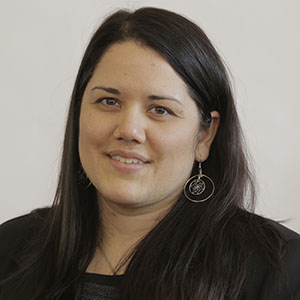 Mary Beth Doucette |
Mary Beth Doucette, a Membertou band member, is a doctoral student in management at St. Mary’s University (Halifax, NS). She is also Assistant Professor and Purdy Crawford Chair in CBU’s Shannon School of Business (Sydney, NS). She has a BEng in industrial engineering from Dalhousie and an MBA in Community Economic Development from CBU. With a focus on interactions between Mi’kmaw and Canadians, Doucette researches how people in organizations use policies and procedures to share knowledge in culturally informed ways. One tangible result of Doucette’s research is a co-edited book (2016, with K. G. Brown and J. E. Tulk), Indigenous Business in Canada: Principles and Practices. The book demonstrates the unequivocal effect that history and policy have on business education as it relates to Aboriginal business and communities. Doucette is currently working on a research project (A SHARED Future) that is rooted in the desire for reconciliation between groups and with the environment. Doucette explains she likes this project because “it focuses on capacity development through mentorship and applies action research strategies that are based in Etuaptmumk/Two-Eyed Seeing.” |


